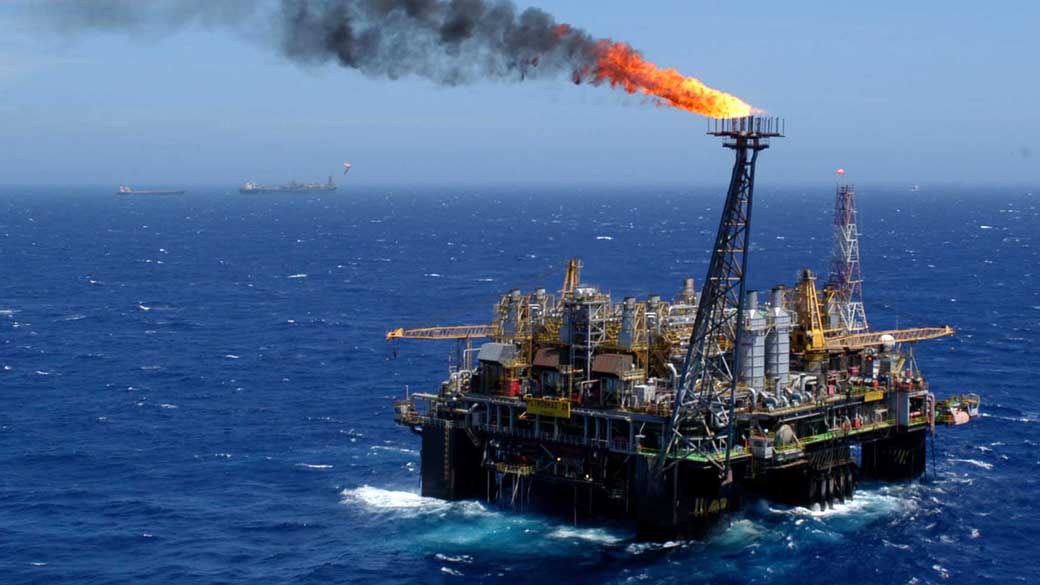RIO DE JANEIRO, BRAZIL – The Campos Basin, an oil production area that made the North of Rio de Janeiro state a prosperous region in terms of revenue and employment, has embarked on a downward spiral that has lasted for five years and has been bolstered by the pandemic. Never before has Petrobras disposed of so many fields and platforms as in the past two years.
For the first time, in 2020, production in the Campos Basin fell below the 1 million barrels per day mark. Moreover, Covid-19 led employees who had formerly worked in the region to move to other locations.
The effect of this convergence of negative factors is visible in cities such as Macaé, Campos dos Goytacazes and Rio das Ostras. The multiplication of real estate rental and sales signs reflects the crisis and reveals that the North of Rio de Janeiro state is no longer a land of opportunities.

“I opened a small place in downtown Macaé in 2010 to serve lunches and snacks. It was great until 2015. But three years later, it was no longer good. With Covid, I closed the business. Now I bake cakes at home,” says Manoela Guedes, who had up to 11 staff and this year dismissed the last three.
In Campos dos Goytacazes, the city most benefited by the collection of royalties in times of prosperity, the president of the trade association, Leonardo Abreu, says that he is also being affected by the crisis.
In 2019, after Petrobras vacated a building in the city, his income dropped by 30 percent. Even before the pandemic’s losses took on greater proportions, Abreu closed his snack store in Macaé in March. “If there is a drop in oil activity, labor will seek other places. There are fewer people here to move around and spend,” says Abreu.
To circumvent these challenges, Herbert de Paula, who for 15 years has owned three bakeries in Macaé, has bet on the sale of more sophisticated and, therefore, more expensive foods. He reports that the number of customers has been dropping since 2015. “This was happening before Covid-19. It started with Lava Jato. Many people left,” he says.
A reflection of the drop in Petrobras investment and its impact on the city of Macaé is the Novo Cavaleiros Building, the last to be vacated by the state-owned company in the city. The lease on the building was terminated in 2019.
Returning possession to the owner was to take place at the end of the year. Then came the coronavirus, and the entire staff was released to work remotely. According to the Union of Oil Tankers of Northern Rio de Janeiro (SINDIPETRO-NF), 1,700 employees were working in the building.
The building is currently a dark structure in a privileged area of the city, occupied by a few security guards and surrounded by an abandoned parking lot and a vacant plot. At the entrance, platform models are piled up in a corner. On the day the reporters went to the site, office furniture piled up on the sidewalk outside the building was later taken by a rubbish removal truck.
The impact of the region’s debacle began with Operation Lava Jato, continued with the drop in oil prices, and is now amplified by Petrobras’ divestment program. Never before has the state-owned company disposed of so many production areas as in 2019 and 2020, says professor Iderley Colombini of the UFRJ (Federal University of Rio de Janeiro) Institute of Economics.
Six fields were sold in their entirety, and two others in part. With the pandemic in 2020, the researcher counts production interruptions on eight offshore platforms. The result: between January and September 2020, Petrobras’ production of oil barrels dropped by 17 percent, according to the National Agency of Petroleum, Natural Gas and Biofuels (ANP).
Petrobras refutes the claim that it has reduced its presence in the North of the state of Rio de Janeiro. Through its press office, it said it “remains in full activity” in the area, where it operates with a renewal plan focused on higher value-added assets. “This plan includes the establishment of at least three new units in the basin in the coming years, in addition to several development projects to increase production, revitalization, and reorganization of the flow network.”
Source: O Estado de S. Paulo

